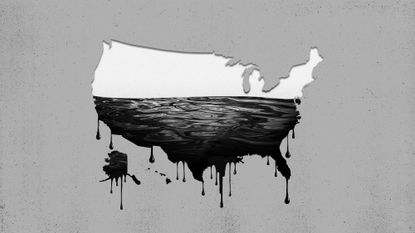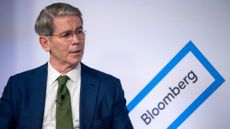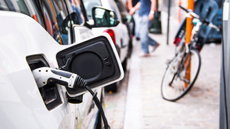Big Oil doesn't need to 'drill, baby, drill'
Trump wants to expand production. Oil companies already have record output.


Donald Trump wants America's energy companies to produce more oil and "unleash" a new era of energy independence. "Drill, baby, drill" was a perpetual refrain on the campaign trail. There's just one obstacle now that he's been elected: The energy companies themselves.
"Oil and gas companies probably have other ideas," said The Guardian. The United States is already the world's largest producer of oil and gas, and has been for the last six years — since the last Trump administration. Big companies right now are profitably focusing on low-cost, high-production wells and reluctant to spend money drilling new wells while crude oil prices "stay flat," said the Guardian. "Nobody's got crazy plans to be drilling at accelerated rates," said Peter McNally, an analyst at Third Bridge.
Among the notable skeptics is ExxonMobil CEO Darren Woods. "I don't know that there's an opportunity to unleash a lot of production in the near term," he said to Semafor. Most companies are already "optimizing their production." Woods naturally opposes climate policies designed to produce a "rapid phaseout of oil and gas consumption." But he doesn't see a need to expand drilling, either. "I don't think today that production in the U.S. is constrained."
Subscribe to The Week
Escape your echo chamber. Get the facts behind the news, plus analysis from multiple perspectives.

Sign up for The Week's Free Newsletters
From our morning news briefing to a weekly Good News Newsletter, get the best of The Week delivered directly to your inbox.
From our morning news briefing to a weekly Good News Newsletter, get the best of The Week delivered directly to your inbox.
'Market forces remain more powerful'
"Drill, baby, drill" is a "political slogan, not a business plan," David Blackmon said at Forbes. Oil companies take action in response to "both public policies and market realities" and while the Trump administration will certainly be "more pro-oil and gas" than its predecessors, the market isn't giving the green light to expanded oil production. Big oil patches like the Permian Basin are in the "mature, development phase of their life's cycles" in which producers focus on maximizing the efficiency of existing wells instead of looking for new places to drill. Public policy is important, Blackmon said, but "market forces remain more powerful."
"Trump's win is neither an oil gusher nor a green crusher," Liam Denning said at Bloomberg. Trump will reduce regulations and make it easier for oil companies to drill on federal lands. But there are "far bigger forces shaping the outlook for prices." Among them are the green technologies unleashed by President Joe Biden's Inflation Reduction Act, which spread climate-friendly tech production to red states. "Self-interest" among Republican members of Congress might prevent a repeal, Denning said. Presidential policies are only one part of the energy equation. "The raft of details matter."
'The most oil produced by any country ever'
Trump has selected oil company executive Chris Wright as his secretary of energy, CNN said. Wright is one of the "industry's most vocal supporters of fracking oil and natural gas" and says the world is not transitioning away from fossil fuels. But the United States already produces more than 13 million tons of oil a day, which is the "most oil produced by any country ever." Market conditions will continue to rule, said former energy official Bob McNally. "It's not like President Biden or any president has a dial in the Oval Office to increase production."
Sign up for Today's Best Articles in your inbox
A free daily email with the biggest news stories of the day – and the best features from TheWeek.com
Joel Mathis is a writer with 30 years of newspaper and online journalism experience. His work also regularly appears in National Geographic and The Kansas City Star. His awards include best online commentary at the Online News Association and (twice) at the City and Regional Magazine Association.
-
 Judges block $25B Kroger-Albertsons merger
Judges block $25B Kroger-Albertsons mergerSpeed Read The proposed merger between the supermarket giants was stalled when judges overseeing two separate cases blocked the deal
By Peter Weber, The Week US Published
-
 Netanyahu takes the stand in corruption trial
Netanyahu takes the stand in corruption trialSpeed Read He is Israel's first sitting leader to take the stand as a criminal defendant
By Rafi Schwartz, The Week US Published
-
 New Syria government takes charge, urging 'stability'
New Syria government takes charge, urging 'stability'Speed Read The rebel forces that ousted Syrian leader Bashar al-Assad announced an interim government
By Peter Weber, The Week US Published
-
 Will Trump (and Sanders) cut credit card rates?
Will Trump (and Sanders) cut credit card rates?Talking Points Common ground is possible. But there's a catch.
By Joel Mathis, The Week US Published
-
 Bitcoin surges above $100k in post-election rally
Bitcoin surges above $100k in post-election rallySpeed Read Investors are betting that the incoming Trump administration will embrace crypto
By Peter Weber, The Week US Published
-
 What does Trump's Treasury secretary pick mean for the economy?
What does Trump's Treasury secretary pick mean for the economy?In the Spotlight Scott Bessent was once a Democratic donor. Now he'll serve Trump.
By Joel Mathis, The Week US Published
-
 Enron mystery: 'sick joke' or serious revival?
Enron mystery: 'sick joke' or serious revival?Speed Read 23 years after its bankruptcy filing, the Texas energy firm has announced its resurrection
By Peter Weber, The Week US Published
-
 Is this the end of the free trade era?
Is this the end of the free trade era?Today's Big Question Donald Trump's threat to impose crippling tariffs 'part of a broader turn towards protectionism in the West'
By Elliott Goat, The Week UK Published
-
 Companies that have rolled back DEI initiatives
Companies that have rolled back DEI initiativesThe Explainer Walmart is the latest major brand to renege on its DEI policies
By Justin Klawans, The Week US Published
-
 Christmas trees: losing their magic?
Christmas trees: losing their magic?In The Spotlight Festive firs are a yuletide staple but are their days numbered?
By Chas Newkey-Burden, The Week UK Published
-
 How the UK's electric car plans took a wrong turn
How the UK's electric car plans took a wrong turnThe Explainer Car manufacturers are struggling to meet 'stringent' targets for electric vehicle sales
By Abby Wilson Published